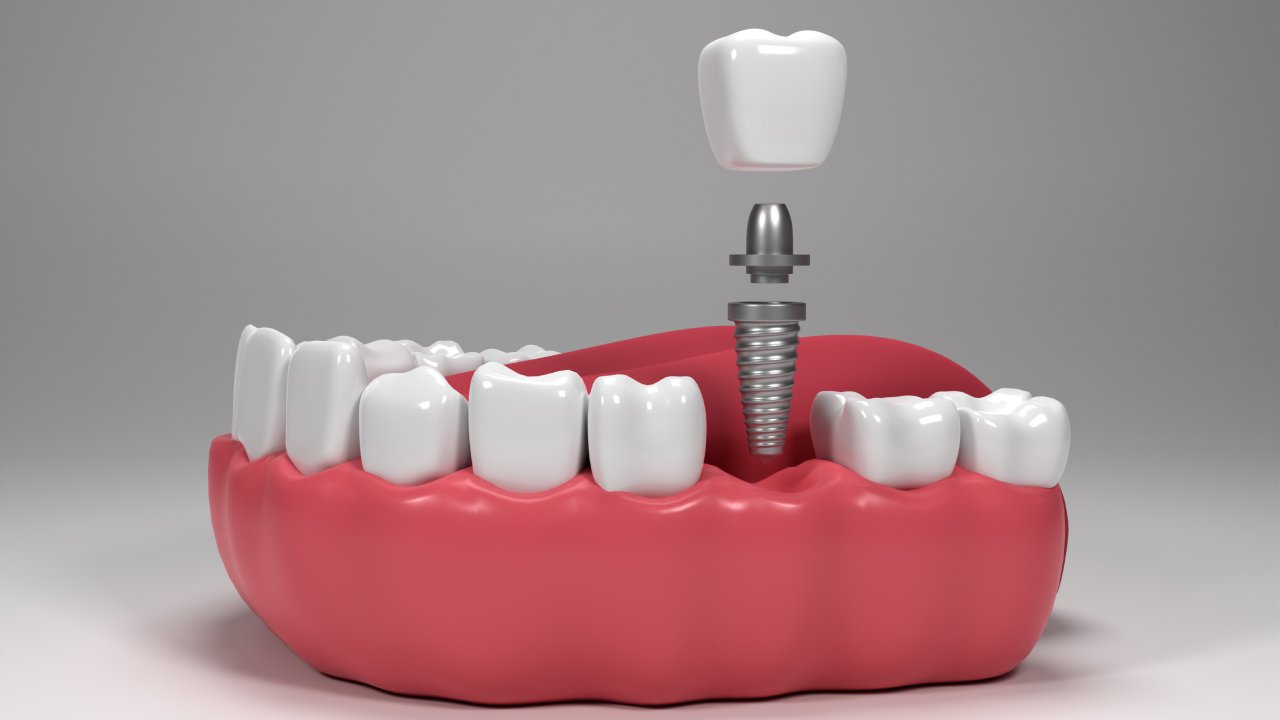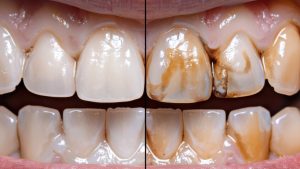Dental implants are a popular choice for those looking to replace missing teeth. They offer a long-lasting and natural-looking solution. However, many people wonder, “How long do tooth implants last?”
This is an important question, especially when you’re making an investment in your oral health. Knowing what to expect in terms of lifespan can help you make an informed decision and plan for the future.
The reality is that dental implants can last for many years, often 25 years or more, if cared for properly. According to a study that tracked over 5,200 patients, several factors influence implant survival, such as age, implant size, and bone type. The highest rate of implant failure was observed in patients over the age of 60, particularly with longer implants (above 11.5 mm) and smaller diameters (less than 3.75 mm).
With over 25 years of experience in implant dentistry, Dr. Mehru Bhatia of My Smile Dental Care is uniquely positioned to provide expert care and guidance on maximizing the longevity of your dental implants.
In this article, we will break down the key factors that determine how long dental implants typically last and share tips on how to care for them to ensure they provide a lifetime of benefit.
What Influences the Lifespan of Dental Implants?
The lifespan of a dental implant depends on several key factors, each playing a significant role in determining how long the implant will remain functional. Let’s break down the most important elements that can influence the longevity of dental implants:
Quality of the Implant
The material used in the dental implant is a crucial factor in its long-term durability. Titanium is the most commonly used material due to its excellent biocompatibility, strength, and ability to fuse with the jawbone in a process called osseointegration. Implants made from titanium or titanium alloys have a proven track record of lasting for many years.
However, alternatives like zirconia implants are becoming more popular, especially for patients with allergies to metal. While zirconia implants are strong and aesthetically pleasing, they may not offer the same level of durability as titanium in certain cases.
The quality of the manufacturer also plays a role. Implants from reputable brands with rigorous testing and quality control standards tend to have a better success rate and longer lifespan. If you’re considering high-quality implants, visit us at Dental Implants Anaheim to explore your options.
Bone Health
For a dental implant to succeed and last over time, the jawbone needs to be healthy and dense enough to support the implant securely. Bone density is a critical factor in implant success because it affects how well the implant integrates with the bone.
If a patient has inadequate bone volume or density, the implant may fail to integrate properly, which can lead to complications or early failure. Bone loss is common in patients who have been without teeth for an extended period, as the bone naturally resorbs when it is no longer stimulated by tooth roots. In such cases, bone grafting may be necessary before implant placement to ensure the implant has a stable foundation.
Patient Care
The patient’s commitment to maintaining proper oral care plays a major role in the longevity of their implants. Good oral hygiene is essential to prevent plaque buildup, infection, and gum disease. All of these can lead to implant failure.
Regular brushing, flossing, and using antimicrobial mouthwash help keep the implant and surrounding gums healthy. Diet also plays a part. Consuming excessive sugary or acidic foods can contribute to plaque formation and gum irritation, which could ultimately affect the implant.
In addition to oral hygiene, lifestyle factors such as smoking can significantly shorten the lifespan of dental implants. Smoking impairs blood flow to the gums and delays healing, making it harder for the implant to properly integrate with the bone.
Smoking also increases the risk of gum disease, which is a leading cause of implant failure. You may want to learn how to remove tobacco stains from teeth to maintain your overall oral health and aesthetics.
Additionally, healthy habits like regular dental checkups, avoiding teeth grinding, and wearing a mouthguard can help protect implants and ensure their long-term success.
Can Implants Last a Lifetime?

While the titanium implant itself can last for several decades, the restorations placed on top, such as crowns or bridges, may need replacing due to wear over time. These restorations are subject to everyday forces like chewing and biting, which can gradually cause them to wear, crack, or discolor.
The implant post remains strong, but the crowns or bridges might need to be replaced after a certain number of years to ensure function and aesthetics are maintained. The materials used for restorations also play a role in their durability.
For example, porcelain crowns are sturdy but can chip if subjected to excessive force, such as grinding teeth or eating very hard foods. Even though the implant itself may remain intact, the restoration may need attention after several years of use.
If you’re considering an alternative to crowns, such as veneers, you can compare the benefits and differences between veneers vs. crowns to make the right choice for your needs.
Endnote
Dental implants are a valuable investment for those seeking a long-term solution to missing teeth. While they can last for many years, their success relies on factors such as proper maintenance and timely replacement of restorations when needed.
Understanding these aspects can help you make the most of your implants and enjoy a confident smile for many years.
If you have any questions or are considering dental implants, Dr. Mehru Bhatia and the team at My Smile Dental Care are here to guide you through the process and provide expert advice tailored to your needs.








